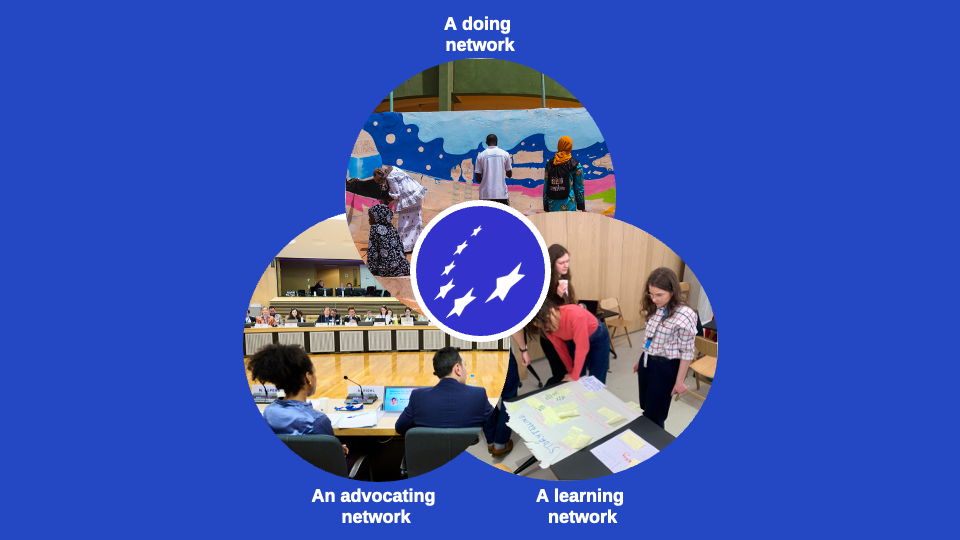
A New Culture Compass for Europe. Photo: European Commission.
ClimArt Action Knowledge Sharing Workshop. Photo: EUNIC.
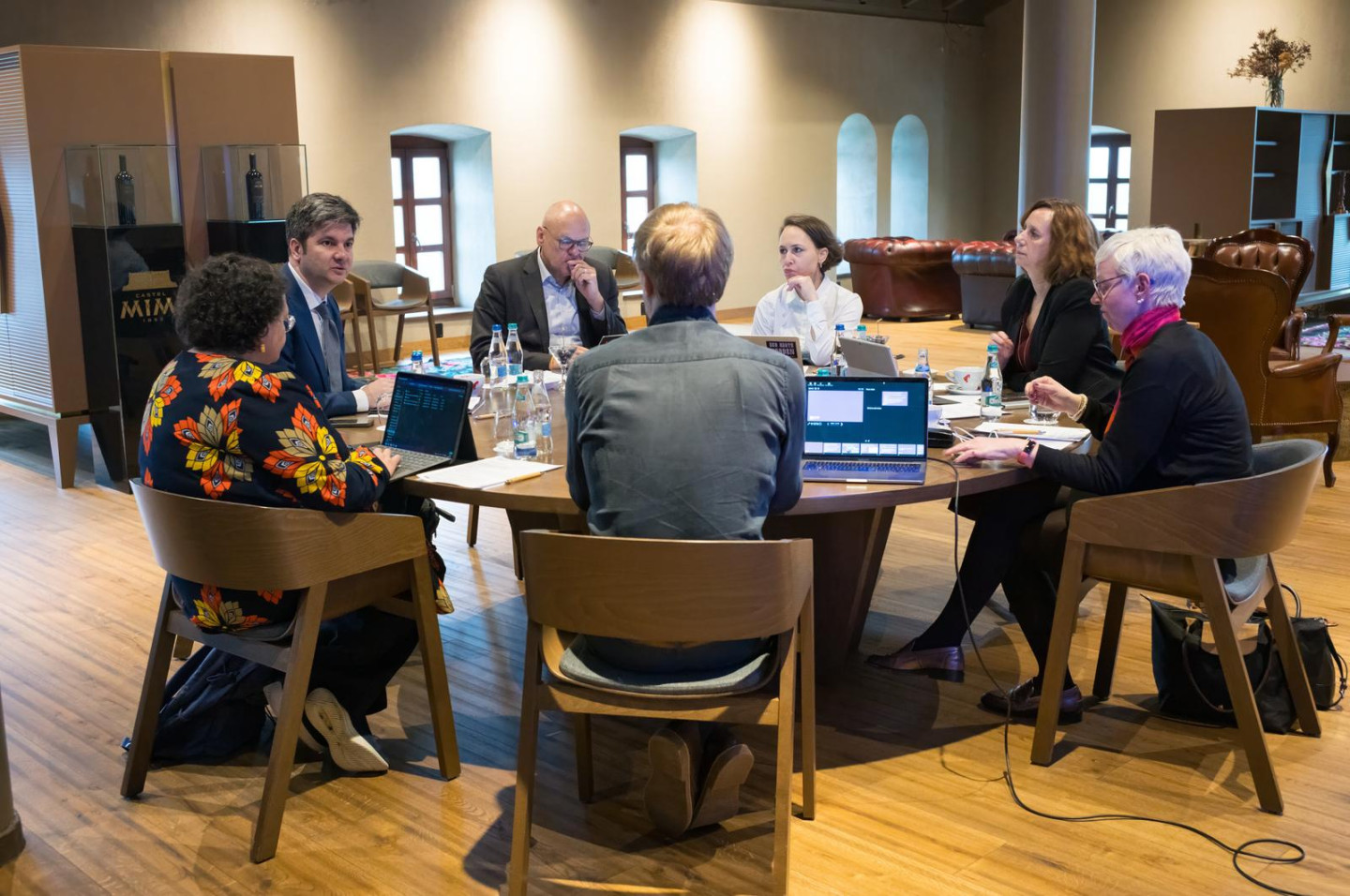
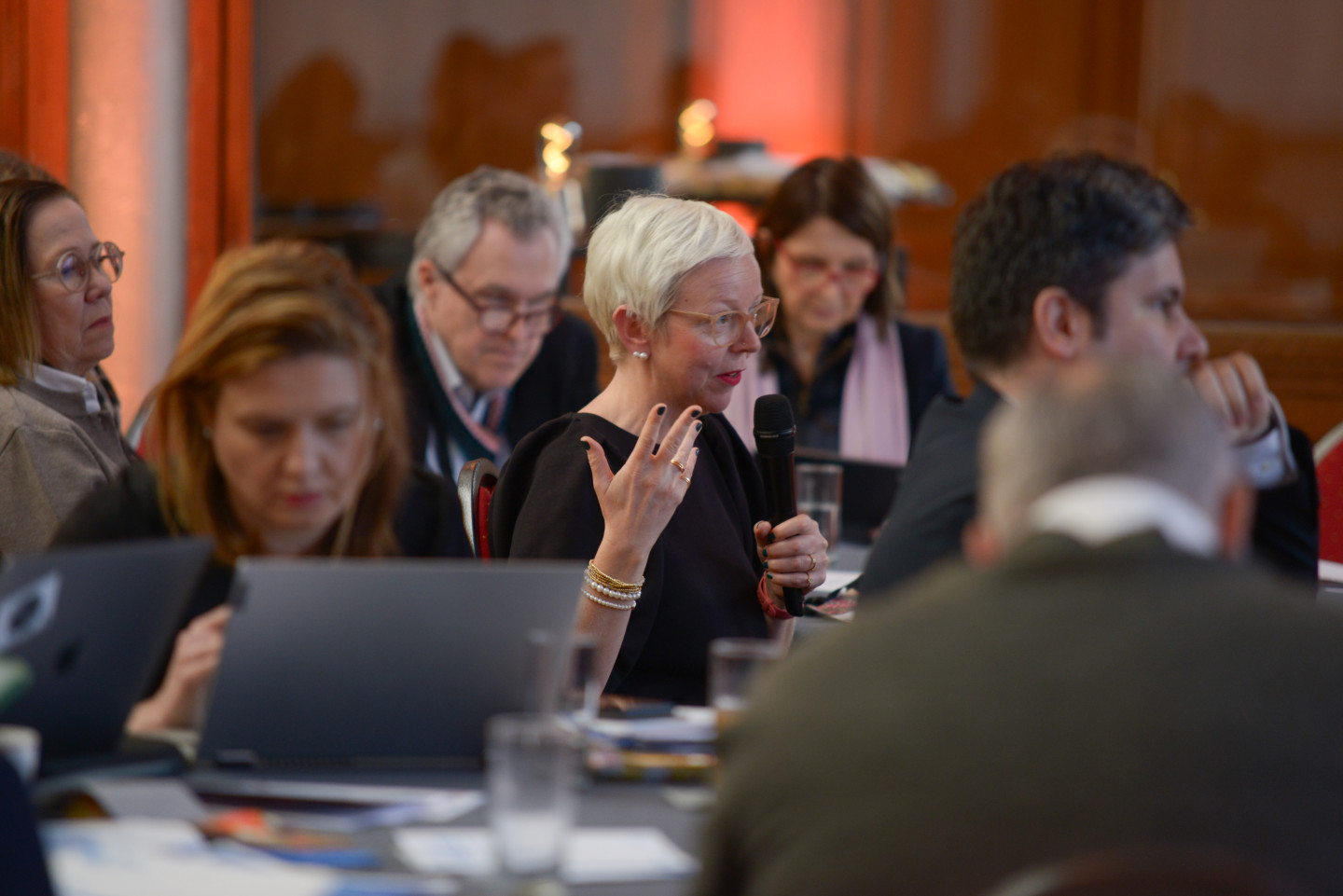
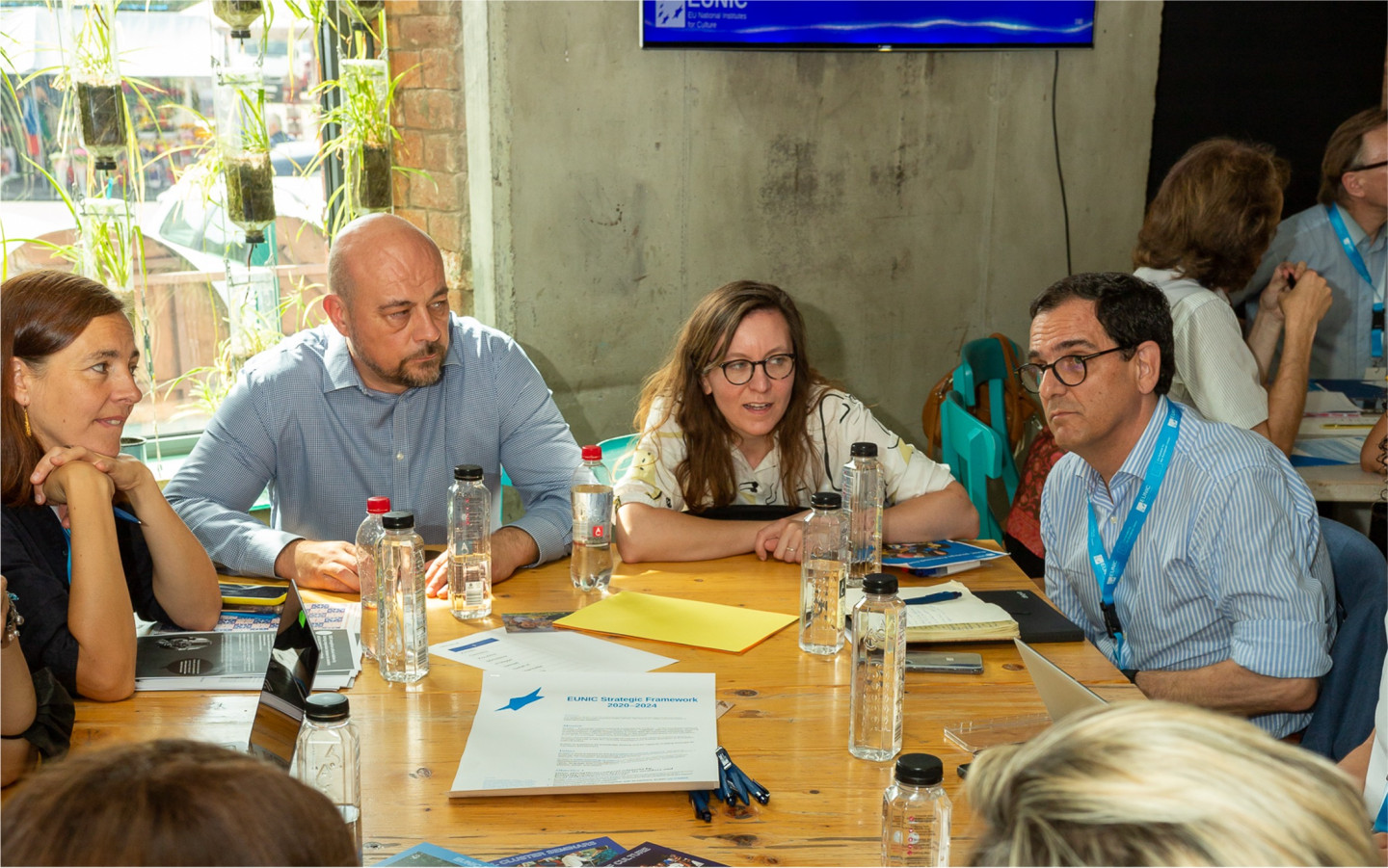
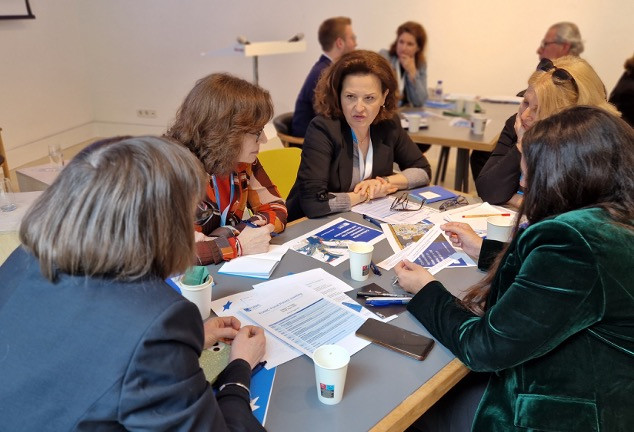
New EUNIC Strategic Framework 2025-2029
EUNIC is proud to announce the adoption of its new strategic framework for 2025–2029, which sets out the vision, values, and objectives that will guide the network over the next four years.

A New Culture Compass for Europe. Photo: European Commission.
ClimArt Action Knowledge Sharing Workshop. Photo: EUNIC.




The final version of the strategic framework was signed off by the EUNIC Board at their latest meeting, adopted in March 2025, and presented at the EUNIC Focal Points Meeting in London in May 2025.
The framework has been shaped by extensive dialogue with the EUNIC membership at various levels - from local branches in clusters to the Board of Directors and members’ headquarters - ensuring it reflects the diversity and evolving needs of EUNIC’s global network and its partners.
Discover the new EUNIC Strategic Framework here.
EUNIC builds a collective cultural relations approach amongst its members, to strengthen trust and understanding internationally through culture. EUNIC advocates for the role and recognition of culture as a core component of international relations.
EUNIC’s core mission, fundamental values, and commitment to the cultural relations approach remain fit for purpose, while the three key objectives of the framework have been refreshed to better reflect the core pillars of EUNIC's activity.
The three core pillars of the new EUNIC Strategic Framework are:
• EUNIC is a doing network: day to day around the globe we create people-to-people collaborations through culture.
• EUNIC is an advocating network: we support the European Union to develop a prominent role as an international cultural relations actor.
• EUNIC is a learning network: together we create peer-to-peer capacity building opportunities and a platform for strategic reflections.
These objectives are interconnected and reinforce one another - EUNIC operates at the intersection of all three.
While the newly revised document builds on the previous strategic framework from 2020–2024, there are several important evolutions and additions worth noting.
So, what is new?
A collaborative, forward-looking approach
The new strategic framework is the result of a more inclusive and collaborative consultation process.
Through input gathered at EUNIC General Assemblies, Focal Points meetings, Regional Cluster Seminars, and working sessions, alongside strategic guidance from the EUNIC Board of Directors, the framework reflects the plurality of perspectives and the broad range of realities of EUNIC members.
Responding to today’s global challenges
The new framework is designed to be more responsive to the changing global landscape. It addresses current global challenges such as geopolitical shifts, the climate crisis, misinformation, and ongoing conflict.
In a world marked by continuous crisis and persistent uncertainty, the revised framework is intended to be a flexible and adaptable document that evolves with the members it represents.
More confident and ambitious in EUNIC’s advocacy role
EUNIC is no longer just contributing to EU processes, consultations, and collaborative frameworks - it is shaping them.
This new framework positions EUNIC as a vital bridge between local experience and international policymaking. It reflects a more confident and outward-looking approach to advocacy, with a more prominent voice in global conversations on culture and international relations.
Rooted in cultural relations on the ground
There is a stronger focus on people-to-people connections and the relationships between members and cultural actors at local level.
Clusters now play an even more central role as important structural allies in building links with civil society. In this local work, more emphasis is placed on fairness, mutual respect, solidarity, and a shared commitment to cultural diversity.
Strengthening the EUNIC community of practice
The framework is more targeted towards equipping members to engage with and act on the global issues affecting our work, such as freedom of expression, sustainability, misinformation, and new technologies.
It encourages more proactive member engagement, with clearer entry points for participation across the network. There is also a stronger emphasis on peer learning, knowledge exchange, and improving internal communication as a network.
Situated within a broader global momentum
The strategic framework both contributes to and is reinforced by an ever-growing global momentum in international cultural relations.
The document makes direct references to various recommendations, citations, and policy developments from bodies including the European Union institutions, G7, G20, and United Nations.
A clearer path towards active membership
The new strategic framework clearly sets out how EUNIC members can actively contribute to the shared success of our network.
The document makes a more explicit reference to what is expected from members of the network and sets out a clear path towards success.
